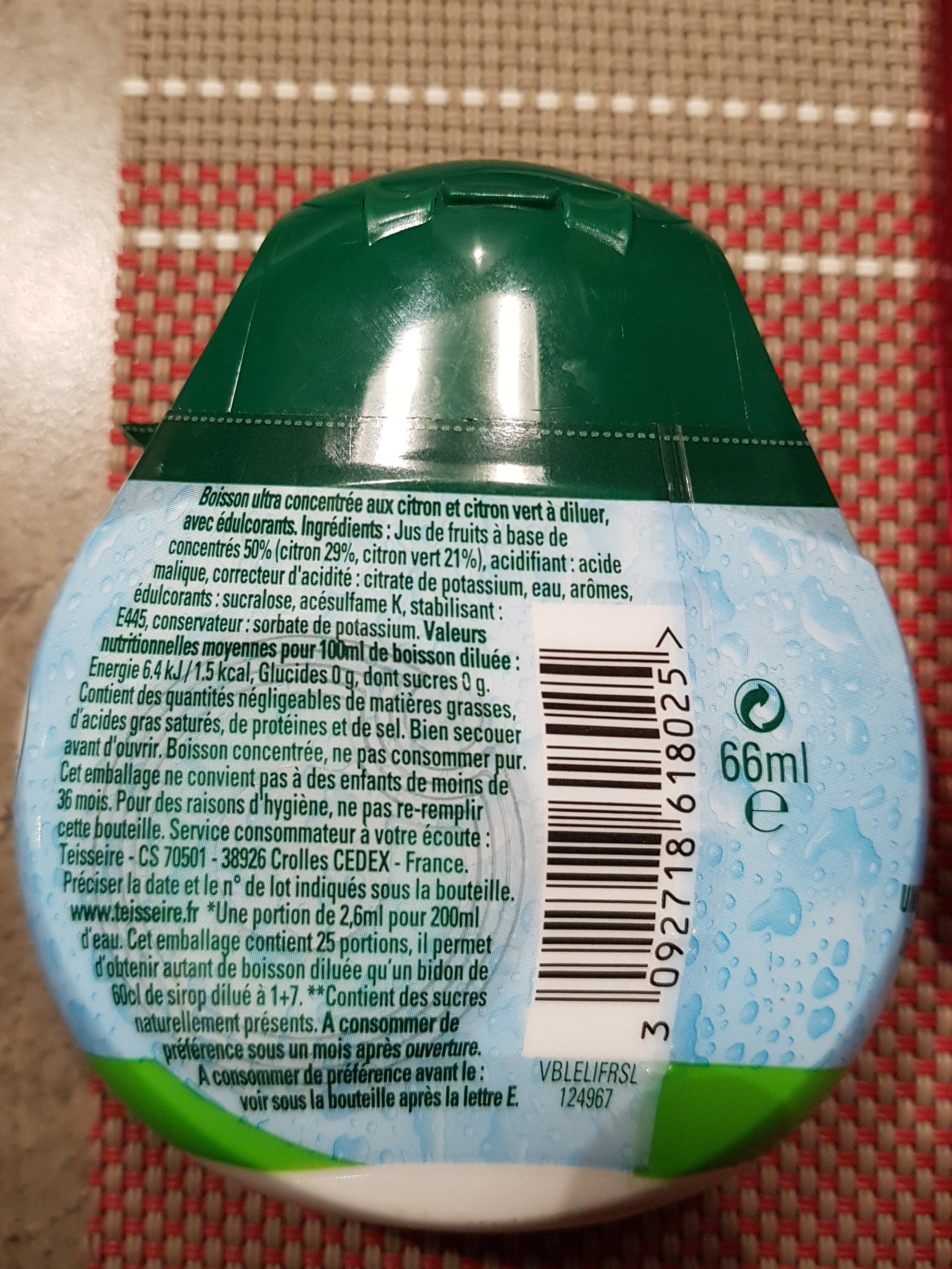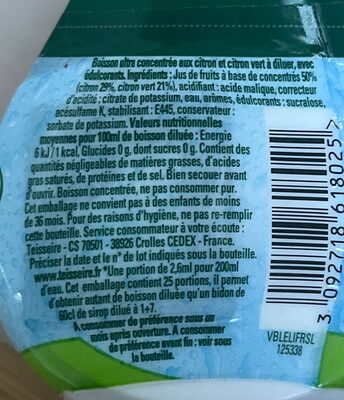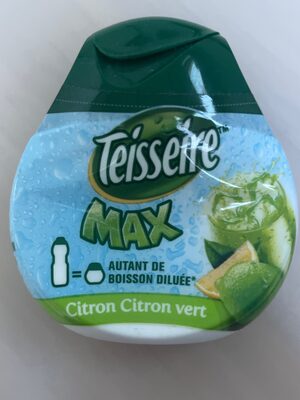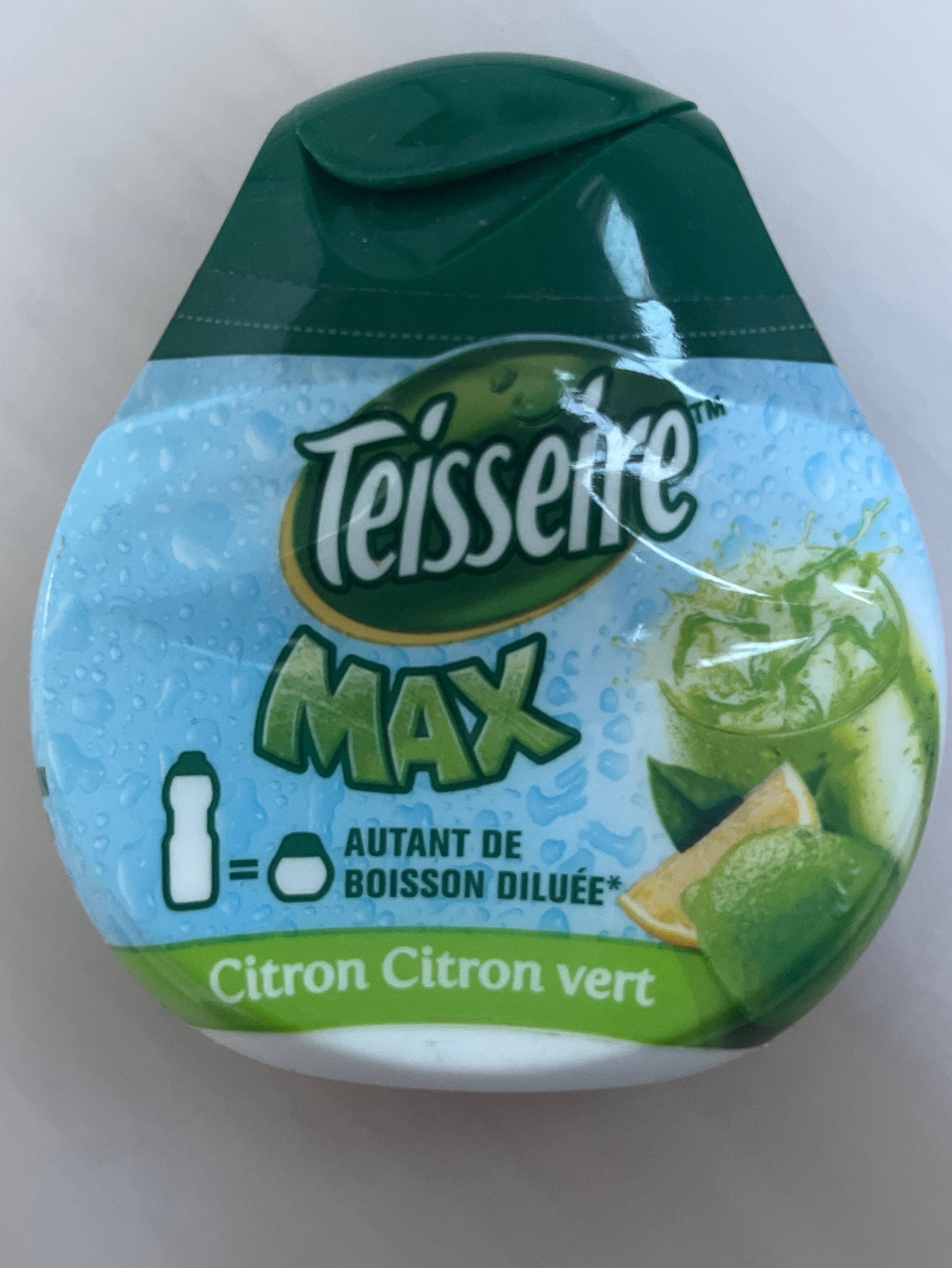CITRON / CITRON VERT MAX - Teisseire - 66ml
This product page is not complete. You can help to complete it by editing it and adding more data from the photos we have, or by taking more photos using the app for Android or iPhone/iPad. Thank you!
×
Barcode: 3092718618025 (EAN / EAN-13)
Quantity: 66ml
Brands: Teisseire
Categories: Beverages, Syrups, Artificially sweetened beverages, Unsweetened beverages, Flavoured syrups, Lime syrups
Countries where sold: France
Matching with your preferences
Report a problem
Data sources
Product added on by kiliweb
Last edit of product page on by dap.
Product page also edited by beniben, beziel, julie-yuka, openfoodfacts-contributors, packbot, yuka.SDc5ZExJa3d0UDhUbnZRQngwL1Y1STFYNnBpdmNXcVVCYklUSVE9PQ, yuka.WUxFbFNhZ21nOFVVbS9ObXIwdjM1ZEFrNW8rSlRYaWNMTkJLSUE9PQ.
If the data is incomplete or incorrect, you can complete or correct it by editing this page.










